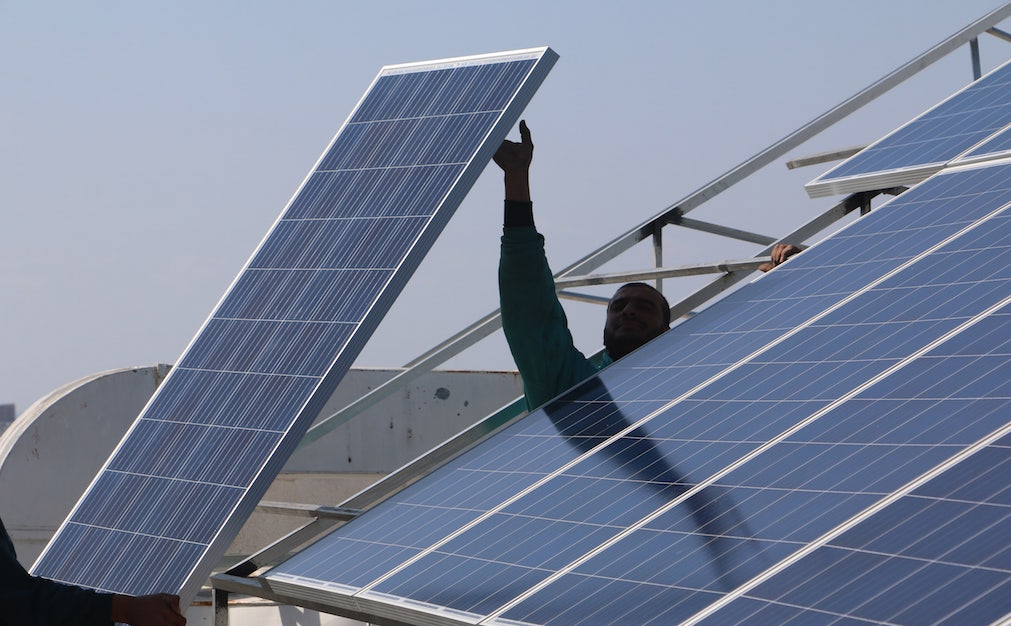The request was so minimal, it was surprising the answer wasn’t just an immediate yes.
Tarek Loubani, the Canadian doctor injured treating Palestinian victims of Israeli sniper fire, asked the Trudeau government last month for $15 million to help pay for solar panels to provide desperately needed energy at Gaza hospitals.
Given the ongoing crisis in Gaza, where 135 Palestinians have been killed and more than 3,000 injured while taking part in weekly protests at the Israeli border over the last three months, it doesn’t seem like a lot to ask of Canada, which was once seen as an honest broker — if not an important player — in the Mideast conflict.
So the Trudeau government’s hesitation points to the extraordinary power of the pro-Israel lobby, which is determined to keep Ottawa in step with the rigidly pro-Israel stance adopted by Stephen Harper’s Conservatives.
Already, Justin Trudeau has differentiated himself from Harper by showing some willingness to criticize Israel, describing its use of live ammunition against protesters as “inexcusable” and calling for an independent investigation into a particularly bloody day of protest in response to Donald Trump’s decision to move the U.S. embassy to Jerusalem.
But Trudeau toned down his criticism after attacks from Conservatives and pro-Israel groups, and Canada abstained on a UN General Assembly vote condemning Israel for disproportionate use of force.
For years, Israel has claimed it is acting in self-defence, even though Palestinians have been essentially defenceless against its state-of-the-art military hardware.
But the recent killings have dramatized the lop-sided nature of the conflict — with thousands of unarmed men, women and children gathering in open view at the border as Israeli snipers have picked them off, with about as much difficulty as shooting fish in a barrel.
Dr. Loubani, who teaches medicine at University of Western Ontario, was shot in the leg while standing about 25 metres from protesters and wearing full hospital greens.
Beyond denouncing the violence, Canada needs to revive its commitment to dealing with the root of this conflict — that millions of Palestinians have been living under military occupation for more than 50 years, with Israel effectively annexing their land for settlements that now house more than 500,000 Israelis. (Israel “withdrew” from Gaza in 2005, but has maintained a land, sea and air blockade around it.)
Officially, Canada has long opposed the Israeli occupation. According to the Canadian government website, Canada supports UN Resolution 242 calling for Israel to withdraw to its 1967 borders, and endorses “the creation of a sovereign, independent, viable, democratic and territorially contiguous Palestinian state.”
In practice, however, Canada has done little in recent years to advance or even show support for this goal.
In 2016, the Trudeau Liberals supported an outrageous Conservative motion that condemned any Canadian organization or individual promoting the Palestinian call for boycotts and sanctions against Israel until it abides by international law.
So while Canada officially condemns the occupation, it also condemns bringing pressure on Israel to end the occupation through boycotts or sanctions — even though these non-violent measures are routinely used by many countries, including Canada.
Last fall, for instance, the Trudeau government imposed sanctions on Venezuela – a struggling Third World nation facing a revolt led by its wealthy elite. Ottawa increased its sanctions against Venezuela in May, citing “illegitimate and anti-democratic presidential elections” — while at the same time Israel was killing protesters and shooting a Canadian doctor without prompting any sanctions from Canada. (Indeed, even advocating such sanctions gets you in trouble in Canada!)
Canadians don’t appear to share Trudeau’s reluctance to put pressure on Israel.
An EKOS poll last year found that 66 per cent of Canadians consider sanctions against Israel “reasonable” to ensure its respect for international law.
That polling suggests that Canadians, rather than condemning the international boycott movement, might like Canada to join it.
Certainly, I bet Canadians would support Ottawa helping out with solar panels for Gaza hospitals whose electricity is limited to four hours a day, making it difficult to carry out normal hospital functions, let alone treat shooting victims.
Surely even Conservatives and pro-Israel groups wouldn’t object to Palestinians having functioning incubators and dialysis machines.
Linda McQuaig is a journalist and author. Her book Shooting the Hippo: Death by Deficit and Other Canadian Mythswas among the books selected by the Literary Review of Canada as the “25 most influential Canadian books of the past 25 years.” A version of this column originally appeared in the Toronto Star.
Photo: UNDP. Used with permission.




